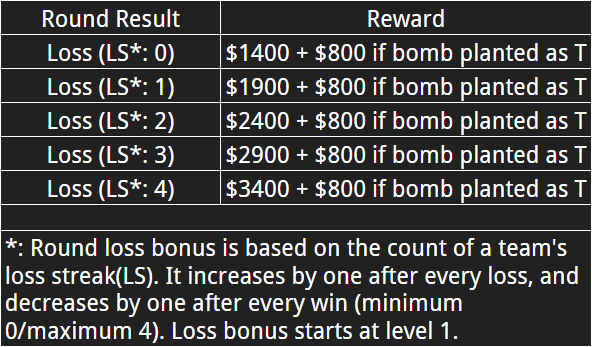Blooming Market Insights
Explore the latest trends and insights in digital marketing.
Why Force Buying in CSGO Might Just Be Your Best Worst Decision
Discover why force buying in CSGO could be the smartest bad choice you’ll ever make. Unravel the risks and rewards now!
The Psychology Behind Force Buying in CSGO: Is It Worth the Risk?
The phenomenon of force buying in Counter-Strike: Global Offensive (CSGO) is deeply rooted in psychological triggers that can impact player decision-making. When a team finds itself in a precarious financial situation, the urge to make a force buy can be overwhelming. Players often succumb to the pressure of wanting to contribute to their team's efforts, leading to impulsive purchases that may not align with strategic gameplay. This behavior can be attributed to cognitive biases such as the bandwagon effect and loss aversion, where the desire to avoid losing can overshadow rational thinking about the team's overall economy.
However, the question remains: is force buying worth the risk? On one hand, a successful force buy can turn the tide of a match, boosting player morale and confidence. On the other, it can lead to greater financial disadvantage if the attempt fails. Teams must balance the potential rewards against the negative repercussions, as a misguided force buy can result in a significant setback. Ultimately, understanding the psychological underpinnings of this behavior is crucial for players aiming to make more strategic choices in high-pressure situations.

Counter-Strike is a popular first-person shooter game that emphasizes teamwork and strategy. Players can choose different weapons to enhance their gameplay, including the m4a4 temukau, known for its versatility and power in competitive matches.
Force Buying vs. Saving: When to Make the Tough Call in CSGO
In the dynamic world of CSGO, players often face a critical decision: whether to engage in force buying or to save their in-game currency for future rounds. Force buying refers to the strategy of spending all available money immediately to secure superior weapons and equipment, even if it means risking a lower overall economy in later rounds. This tactic can lead to unexpected victories in crucial matches, particularly if your team is confident and coordinated. However, it also comes with significant risks, as failing to win the round can leave you without sufficient funds for subsequent plays.
On the other hand, savings can provide a long-term advantage, allowing players to accumulate enough funds for a full buy in a subsequent round. Choosing to save can be a strategic move, especially when your team is down and needs a stable economy to mount a comeback. It's essential to assess the situation carefully and consider not just the current game state but also your team's overall performance and morale. Balancing between force buying and savings is critical; knowing when to make the tough call can be the difference between victory and defeat in CSGO.
Understanding the Impact of Force Buying on Team Dynamics in CSGO
Understanding the impact of force buying in Counter-Strike: Global Offensive (CSGO) is vital for appreciating team dynamics and overall game performance. Force buying occurs when a team, facing a financial deficit, chooses to purchase weapons and utility despite not having enough resources to fully equip themselves in the subsequent rounds. This strategy can be high-risk but may also yield significant rewards if executed well. However, it often leads to decreased morale and increased tension among team members, as decisions made in the heat of the moment can result in blame when outcomes don't align with expectations.
Furthermore, frequent force buying can disrupt the team’s dynamics, affecting communication and strategy cohesion. When players engage in force buying, it may signal a lack of confidence in the team's ability to recover financially. This can create a ripple effect where players become increasingly hesitant to share opinions or suggest strategies. To mitigate such issues, teams should establish clear communication guidelines and financial management strategies, ensuring that all members are on the same page regarding purchasing decisions and the overall game plan.